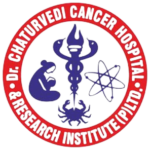Breast cancer is a type of cancer that forms in the cells of the breast tissue. It is the most common cancer among women worldwide, although it can also occur in men (albeit much less frequently). Breast cancer can develop in different parts of the breast, including the ducts that carry milk to the nipple (ductal carcinoma) and the glands that produce milk (lobular carcinoma), as well as in other breast tissues.

Risk Factors: While the exact cause of breast cancer is not fully understood, certain factors may increase the risk of developing the disease, including age, family history of breast cancer, genetic mutations (such as BRCA1 and BRCA2), hormonal factors, lifestyle choices (such as alcohol consumption, obesity, and lack of physical activity), and exposure to radiation.
Symptoms: Symptoms of breast cancer may include a lump or thickening in the breast or underarm area, changes in the size or shape of the breast, changes in the appearance of the skin or nipple (such as redness, dimpling, or nipple discharge), and breast pain. However, not all breast cancers cause symptoms, and some may be detected through screening before symptoms appear.
Diagnosis: Breast cancer is typically diagnosed through a combination of methods, including physical examination, imaging tests (such as mammography, ultrasound, or MRI), and biopsy (removal and examination of a sample of breast tissue).
Treatment: Treatment for breast cancer depends on various factors, including the type and stage of the cancer, as well as the individual’s overall health and preferences. Treatment options may include surgery (such as lumpectomy or mastectomy), radiation therapy, chemotherapy, hormone therapy, targeted therapy, and immunotherapy. Treatment may be used alone or in combination, and it may be tailored to each person’s specific situation.
Prognosis: The prognosis for breast cancer depends on factors such as the stage of the cancer, the presence of specific biomarkers (such as hormone receptor or HER2 status), and how aggressively the cancer cells behave. With advances in early detection and treatment, many people with breast cancer are able to survive and live long, healthy lives.
Screening: Regular screening for breast cancer, including mammograms and clinical breast exams, can help detect the disease at an early stage when it is most treatable. Guidelines for breast cancer screening may vary depending on factors such as age, family history, and individual risk factors. It’s important for individuals to discuss screening recommendations with their healthcare providers.



